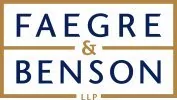In a report published earlier this month the Internal Revenue Service signaled that it would be taking a closer look at taxable income from business activities of colleges and universities, based on a recent IRS survey of 344 public and private post-secondary institutions. The report provided the IRS's interim analysis of the responses to a 42-page "compliance check" survey that asked about the institutions' organizational structures, demographics, related and controlled organizations, exempt and unrelated business activities, endowments, governance practices and executive compensation.
Business Activities
The survey probed 47 different types of activities that might generate taxable income for colleges and universities.
- Advertising, sponsorships. About half the institutions reported receiving revenue from advertising activity, including advertising in printed publications and other printed materials, on television and radio, at athletic facilities, and on the Internet. A similar proportion had corporate sponsorship revenue.
- Rental activities. Eighty percent of the respondents reported some sort of rental activity, including rental of arenas, other athletic facilities, recreation centers, personal property, telecommunications towers, and other facilities.
- Other business activities. Other revenue generating activities reported by significant numbers of colleges and universities included operation of conference centers, hotels, restaurants, food and catering services, golf courses, book stores, and parking facilities. Licensing of broadcast rights, logos, oil and gas interests, patents and trade secrets, mailing lists, and copyrights was reported by a number of institutions. Commercial research was cited as a business activity, along with catalog and internet sales, travel tours, and exclusive use contracts. About 20% of medium-sized and large institutions reported income from partnerships.
Taxable or Exempt?
Not all revenue from business activities conducted by colleges and universities is taxable. In order to be taxable, the income generally must be from a trade or business that is regularly carried on and that is not substantially related to the performance of the institution's educational or charitable purposes. Most types of passive investment income are tax exempt, as is income from a business that is carried on by the institution primarily for the convenience of its students or employees.
The IRS report noted, without reaching any conclusions, that the percentage of institutions reporting non-academic business activities of some sort was much higher than the percentage of institutions reporting taxable income from such activities on IRS Form 990-T. The IRS indicated it will focus on this area to understand whether this gap indicates a broader compliance concern regarding unrelated business income tax issues.
The report also noted that less than 40% of the schools relied on the advice of independent accountants or legal counsel in assessing unrelated business income tax issues.
Other Areas of Interest
In addition to unrelated business activities, the IRS survey collected information about dealings between colleges and their related organizations, endowment fund investment and spending practices, compensation paid by colleges and universities, and governance issues.
Copies of the complete interim report, an executive summary, and the survey that was distributed to the colleges and universities, are available here.
Next Steps
While the IRS continues to analyze the data, it has already begun auditing more than 30 institutions based on their survey responses (or failure to respond). The IRS examinations are expected to focus primarily on unrelated business taxable income and executive compensation issues. The IRS also plans to collect more data on governance practices and procedures, and to analyze these responses to identify policies and practices regarding activities with potential unrelated business income tax implications. After it completes these audits and conducts further analysis, the IRS will issue a final report with a more detailed analysis of the survey results.
Colleges and universities are encouraged to use this interim report as a reminder of the tax issues that are of particular interest to the IRS, and take the opportunity to put their houses in order before their next tax audit.
The content of this article is intended to provide a general guide to the subject matter. Specialist advice should be sought about your specific circumstances.

